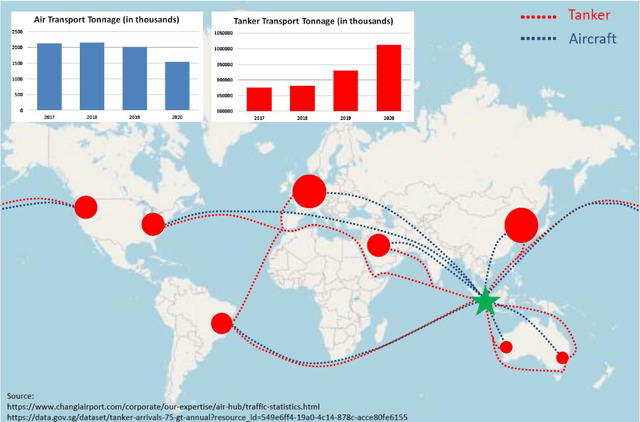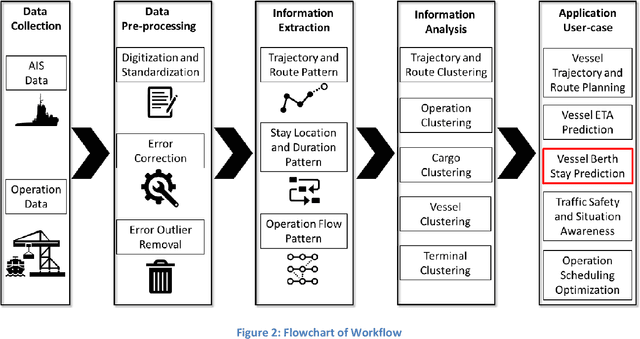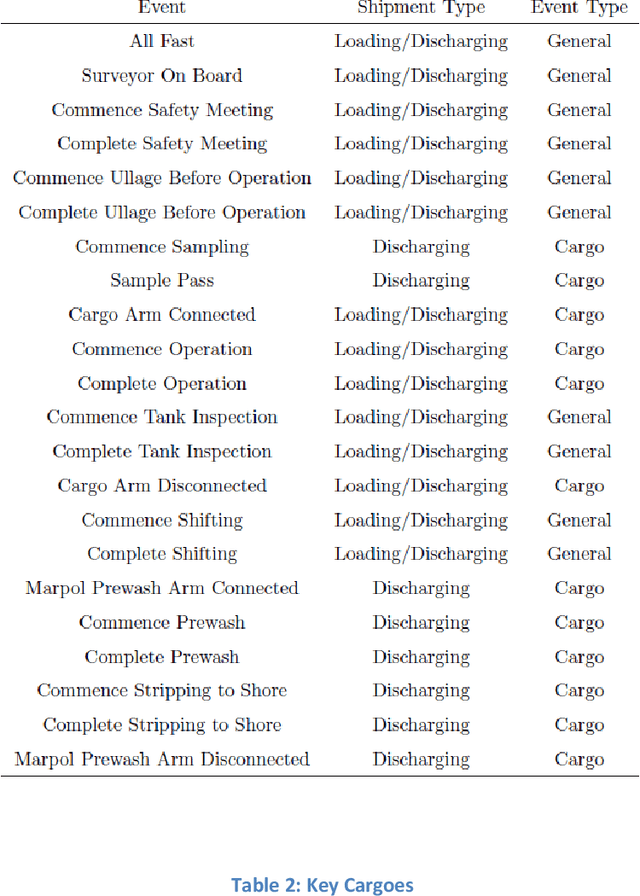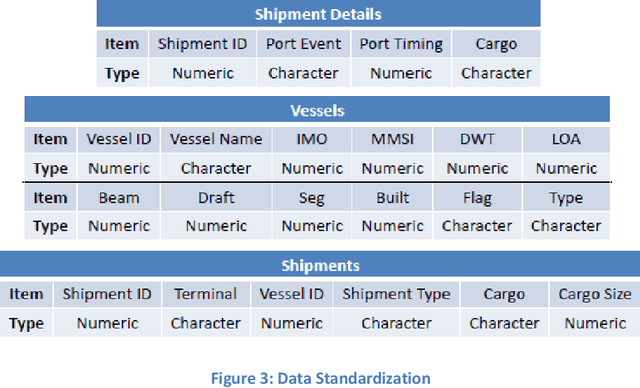Predicting Berth Stay for Tanker Terminals: A Systematic and Dynamic Approach
Paper and Code
Apr 08, 2022



Given the trend of digitization and increasing number of maritime transport, prediction of vessel berth stay has been triggered for requirements of operation research and scheduling optimization problem in the era of maritime big data, which takes a significant part in port efficiency and maritime logistics enhancement. This study proposes a systematic and dynamic approach of predicting berth stay for tanker terminals. The approach covers three innovative aspects: 1) Data source employed is multi-faceted, including cargo operation data from tanker terminals, time-series data from automatic identification system (AIS), etc. 2) The process of berth stay is decomposed into multiple blocks according to data analysis and information extraction innovatively, and practical operation scenarios are also developed accordingly. 3) The predictive models of berth stay are developed on the basis of prior data analysis and information extraction under two methods, including regression and decomposed distribution. The models are evaluated under four dynamic scenarios with certain designated cargoes among two different terminals. The evaluation results show that the proposed approach can predict berth stay with the accuracy up to 98.81% validated by historical baselines, and also demonstrate the proposed approach has dynamic capability of predicting berth stay among the scenarios. The model may be potentially applied for short-term pilot-booking or scheduling optimizations within a reasonable time frame for advancement of port intelligence and logistics efficiency.
 Add to Chrome
Add to Chrome Add to Firefox
Add to Firefox Add to Edge
Add to Edge